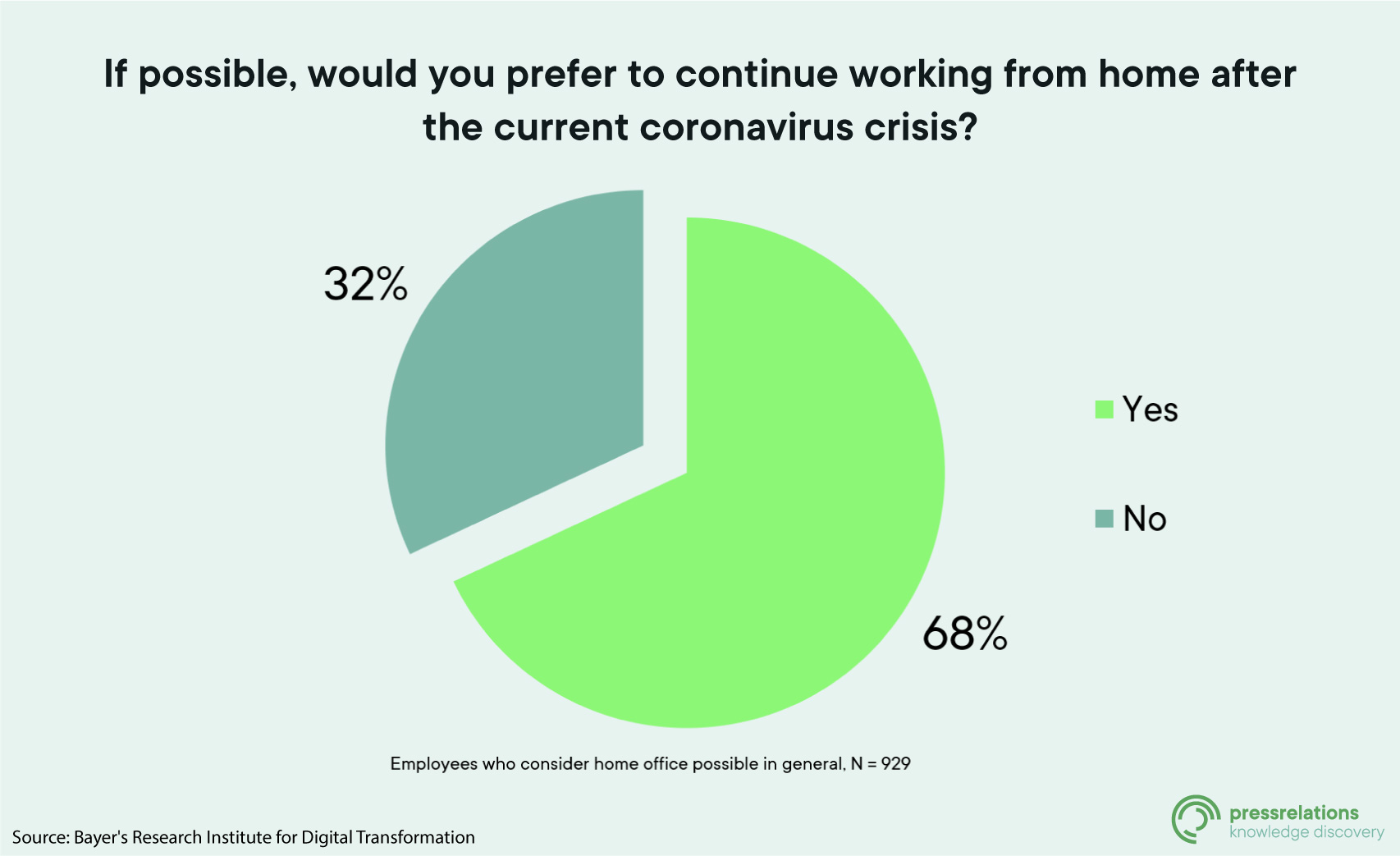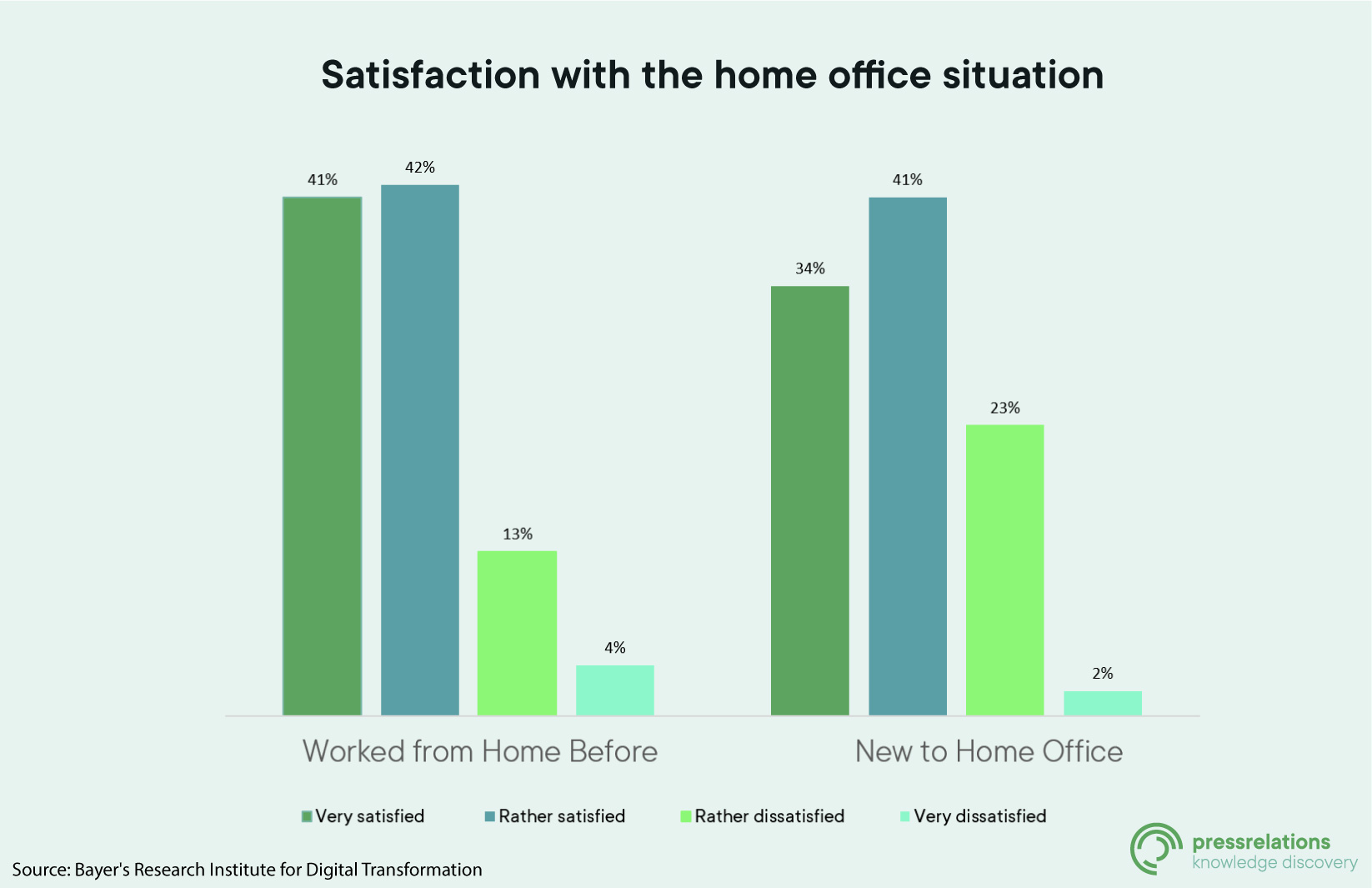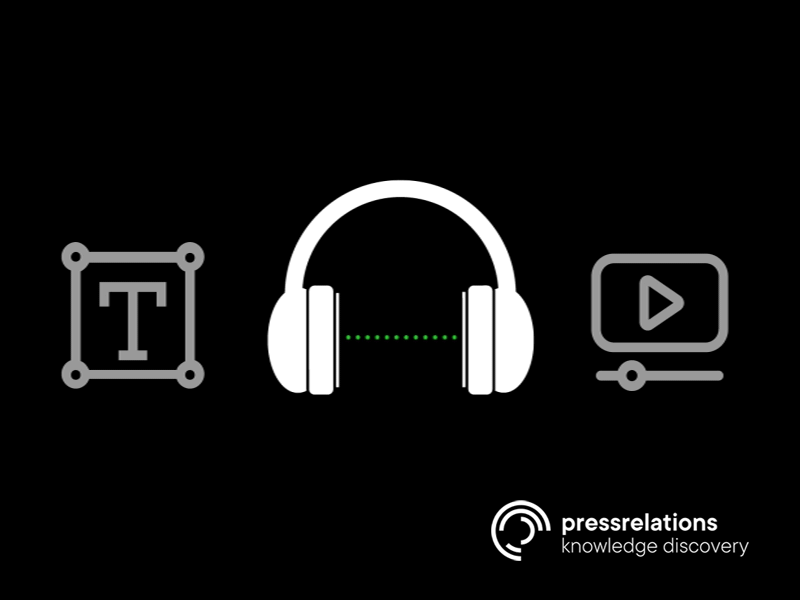The effects of the coronavirus crisis on our work environment and the economic and financial consequences associated with it are becoming apparent in every dimension. After the federal and state governments agreed to weaken the coronavirus restrictions at the beginning of May, more and more companies are now preparing to end the shutdown. There are many challenges – on the one hand, the virus has changed the business world, and on the other hand, hygiene concepts and distance rules must be implemented when returning to the office. What should companies prepare for and what trends will mark the upcoming weeks and months?
1. WORKING FROM HOME OR AT THE OFFICE? TIME TO PROVIDE MORE FLEXIBILITY
What used to be considered a luxury and was viewed rather sceptically by many a boss has turned out to be a decisive criterion for the survival of many companies during the crisis. For example, the number of people who do their work from home has increased significantly since the coronavirus. According to a study by the Bavarian Research Institute for Digital Transformation, 43 percent of Germans are now at least partially working from home; before the crisis, this applied to only about a third of those surveyed. 39 percent stated that their employer had not previously approved of home office practices. This will probably change in the future. Satisfaction with the new status quo is high – around two-thirds of employees who are able to work from home “would like to have more home office options after the corona crisis than before”.

Politicians also recognize the benefits of flexible working practices. Federal Labor Minister Hubertus Heil (SPD), for example, wants to present a law by autumn that grants every employee the right to work from home office. Also, Twitter recently announced that its employees will be able to remain working from home without restrictions even after the coronavirus crisis.
For many, working from home is certainly not an exclusive permanent solution, as personal exchange and contact with colleagues is lacking. In the future, it will, therefore, become all the more important to let people decide which tasks they want to do in the office and when they want to remain working from home.

2. DIGITAL SECURITY IS PRIORITIZED
The switch to home office posed technical challenges for many companies during the Corona crisis. Questions concerning IT security had to be clarified and solved: It became clear how important good digital skills are and how many deficits have to be compensated. According to the ESET study “Change in the world of work through Corona”, one in seven people who work from home are dependent on using their own equipment. A quarter of home office employees have not received an IT guide on what to consider when working from home. This is a precarious situation in which home office can quickly become a security threat and a danger to the company.
A firewall or virus protection is often missing on personal computers. IT security experts warn of a wave of cybercrime. In response to the danger, the “Cyber Threat Coalition” platform was founded. There, employees of antivirus companies, IT security companies, and even officials of state authorities have joined forces to exchange views on the issues of online security in times of COVID-19.
As working from home will only become more widely used in the future, the topic of digital security will continue to grow in importance, especially with regard to the handling of professional data in the private sphere. Corporate firewalls and professional antivirus programs are often not available in home office. For corporate VPN networks, unprotected technology can become a loophole for hacker attacks.
3. TRUST IS BETTER THAN CONTROL
The crisis shows that companies that rely on agile work structures, place trust in their employees, and invest in independent action have a clear advantage. It is worthwhile to invest in corporate culture, especially now, says futurologist Andreas Steinle in an interview with pressrelations.
“The more crises, insecurity and changes there are, the more important is the social cement that holds a company together. Even when you can’t be together, like right now.”
Teams that had not worked well before would certainly not work better in digital collaboration, says the futurologist.
The corona pandemic will lastingly change corporate cultures and working atmospheres. Companies should be aware of this: In order to be fit for the future, it also needs a strong internal basis, trust, and respectful interaction.
4. GROWING DEMAND FOR DIGITAL TOOLS
With the outbreak of the coronavirus, changes in many work processes had to be made very quickly. Many companies had to react from one day to the next and create digital structures in order to continue working under the restrictions of the shutdown.
“We saw 2 years of digital transformation in 2 months.” says Microsoft CEO Satya Nadella.
The Microsoft co-working software “Teams” now has 75 million users daily, twice as many as at the beginning of March. In the entire month of March, video calls made via “Teams” increased by 1,000 percent. Microsoft is not the only company celebrating such success – digital tools such as conference and video software, or apps for improved internal communication, are more in demand than ever during the crisis and will continue to increase in popularity in the future.
Employee apps can be used to set up info pages, feedback channels and chats. Emergency information or changes in regulations can be distributed more quickly by employers this way. For example, the Berlin city cleaning service uses the employee app “myBSR”. Thousands of employees in the capital remain connected to each other through the app. The same applies to the Hamburg-Holstein (VHH) public transport company, where 90 percent of employees work outside and stay in touch via the “Aktuell+” employee app.
Webinars, online conferences, online exhibitions and performances, online medical consultation hours, online shops of local retailers and other sustainable solutions will certainly remain relevant after the coronavirus crisis.
5. FEWER BUSINESS TRIPS
In the future, distance working will mean that fewer and fewer people will travel on business trips. The pandemic could therefore also have a lasting impact on the demand for flights. According to a survey conducted by the German Travel Management Association (VDR), almost 93 percent of the companies surveyed are currently not expecting to resume their travel activities. However, the situation could change again with the easing of pandemic measures. Nevertheless, 63 percent of companies assume that the necessity of corporate travel will be reviewed more carefully in the future.
6. NEW BUSINESS MODELS EMERGE
It is not yet clear how many companies will have to file for insolvency despite government aid. Many companies or self-employed people have already found innovative and creative solutions to stay in business during the crisis.
The local and regional orientation of farms will become more important in the future. Current bottlenecks have shown that excessive dependence on the world market can lead to supply deficits. Incentives need to be created to re-establish the production of basic goods locally and to ensure greater economic independence. The appreciation of regional production has also increased in everyday life during the Corona crisis. Numerous initiatives draw attention to small businesses, especially in the social networks under #supportlocalbusinesses. Both regional foods and face masks, as well as other important and basic products, are now produced locally to reduce dependence on the international market.
7. HYGIENE CONCEPTS AND DISTANCE RULES
Even when you return to the office, your daily work routine will never be the same again: Hygiene rules and other precautions will be with us for a long time to come. It will be necessary to make structural changes at many workplaces and to restructure work processes. Employees will have to get used to not shaking hands, greeting colleagues behind Plexiglas panels or orienting themselves by floor markings. These measures could make some processes more difficult or slow them down but are necessary to keep the risk of infection as low as possible.
8. MORE APPRECIATION FOR SYSTEMICALLY IMPORTANT PROFESSIONS
The coronavirus crisis has made visible which professions are of such great social importance that we cannot do without them. The esteem and recognition, especially of medical assistants, nurses and sales staff, has risen sharply in recent weeks. In future, the view people have of these professions will be different.
Fikret Öz from the Institute of Work and Technology (IAT/ Westfälische Hochschule), based on the WSI-LohnSpiegel database, has investigated how wages and salaries in selected systemically important occupations differ from all other occupational groups. The average wage for all employees in systemically important occupations is 30 percent lower. This mainly affects sales assistants and bakery sales assistants, who earn 45 per cent less on average.
German unions demand collective agreements that would apply to all employers and employees in a sector. Some receive a financial stimulus, which remains tax-free if up to 1500 Euro, but does not offer an actual long-term solution. Whether it remains with these one-time checks and pats on the back, or the crisis leads to fair working conditions and higher wages, that remains to be seen.
9. SICK? PLEASE STAY AT HOME
The corona pandemic has also influenced the way we deal with colds and flu outbreaks. Only recently, two-thirds of all employees would have appeared at work despite illness, reports the German Federation of Trade Unions. Many now understand that this puts not only the team at risk but also themselves and even the company. This realization will probably remain after the crisis is gone.
CONCLUSION: HOW CAN COMPANIES PREPARE FOR THE TIME AFTER THE CORONAVIRUS?
Approaches to meaningful change are offered above all in the digital aspects, IT security, and corporate culture. Completely changed working environments are already emerging, with a tendency towards more flexibility. Long outdated principles can now be replaced by more efficient models, while the compulsion for reorientation provides many companies and industries with previously unimaginable opportunities.
Crises direct the focus back to the basics, in this case to local production and essential professions, and provide an impetus for positive change. However, sustainable optimization requires the support of all economic and political actors, in order to ensure an agile, trust-based, and digital working world in the future.






